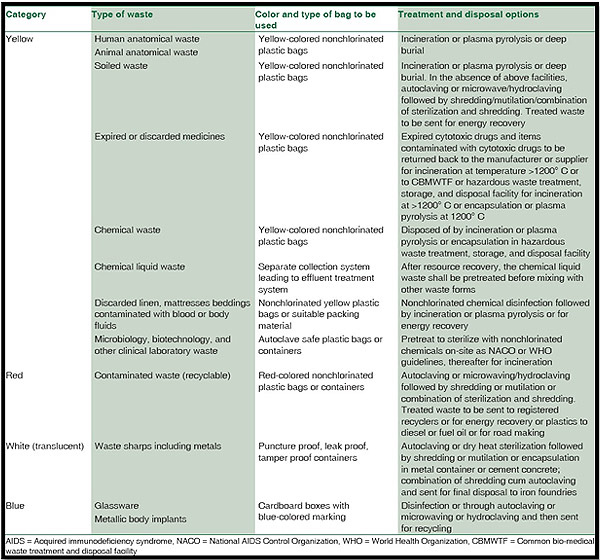The Ultimate Guide To Reclaim Waste
The Ultimate Guide To Reclaim Waste
Blog Article
How Reclaim Waste can Save You Time, Stress, and Money.
Table of ContentsLittle Known Questions About Reclaim Waste.Some Known Facts About Reclaim Waste.The Basic Principles Of Reclaim Waste Facts About Reclaim Waste RevealedA Biased View of Reclaim Waste
Residential sewage waste refers to the waste and items from a residential septic container. The appropriate administration and disposal of domestic sewage waste need liquid waste to be transferred to a sewer therapy plant where the proper techniques and tools are applied to cleanse and dispose of waste.
Business waste typically includes possible hazards, such as combustible materials or a mixture of liquid and strong waste products, and calls for a much more advanced and detailed disposal procedure. The disposal of commercial waste generally involves the filtering of waste prior to transport to make sure secure and appropriate disposal. Hazardous waste is created from byproducts and runoff of industrial procedures and production.
This sort of waste can not make use of the exact same sewer monitoring transportation or procedures as septic or business liquids. The hazardous waste monitoring procedure needs the assessment and testing of liquid waste prior to it undergoes the disposal procedure (liquid waste disposal). Overflow waste is the liquid waste that originates from drainage and excess stormwater in highly inhabited areas or cities
Drainage waste can cause contamination and flooding if not handled properly. Find out more about drain cleansing and waste administration. Making sure proper waste administration can stop disasters and reduce ecological injury. Both people in domestic settings and professionals in commercial or manufacturing sectors can take advantage of comprehending the procedures and guidelines of liquid waste management.
The smart Trick of Reclaim Waste That Nobody is Discussing
Contact PROS Services today to discover our waste management and disposal solutions and the proper means to look after the fluid waste you generate.
(https://filesharingtalk.com/members/604691-reclaimwaste1)This so-called 'wastewater' is not just a crucial resource but, after therapy, will be released to our land, rivers or the ocean. Made use of water from commodes, showers, bathrooms, kitchen area sinks, washings and industrial procedures is understood as wastewater.

water used to cool equipment or tidy plant and devices). Stormwater, a type of wastewater, is runoff that flows from farming and city locations such as roof coverings, parks, yards, roads, paths and seamless gutters into stormwater drains, after rainfall. Stormwater moves without treatment directly to regional creeks or rivers, at some point reaching the ocean.
Little Known Facts About Reclaim Waste.
In Queensland, most wastewater is dealt with at sewage treatment plants. Wastewater is transported from domestic or industrial websites through a system of sewers and pump stations, recognized as sewerage reticulation, to a sewer therapy plant. City governments develop, preserve and run most sewer therapy plants. Operators are certified under the Environmental Defense Act 1994 to release cured wastewater at an appropriate ecological criterion into rivers.
The Department of Natural Resources suggests regional federal governments concerning handling, operating and keeping sewerage systems and therapy plants. In unsewered areas, regional governments might need owners to mount individual or household sewer therapy systems to deal with domestic wastewater from toilets, kitchen areas, bathrooms and laundries. The Division of Natural Resources authorizes making use of house systems when they are shown to be effective.
A lot of stormwater gets no therapy. In some brand-new neighborhoods, treatment of some stormwater to eliminate litter, sand and crushed rock has actually begun making use of gross toxin catches. Wastewater treatment takes place in 4 phases: Eliminates solid issue. Larger solids, such as plastics and various other objects mistakenly released to sewage systems, are gotten rid of when wastewater is passed with screens.
Wastewater then streams right into large containers where solids settle and are eliminated as sludge. Oil and scum are skimmed from the surface area. Utilizes little living organisms called micro-organisms to damage down and eliminate continuing to be liquified wastes and great particles. Micro-organisms and wastes are integrated in the sludge. Eliminates nitrogen and phosphorus nutrients that might cause algal flowers in our rivers and endanger marine life.
The Buzz on Reclaim Waste
Nutrient removal is not readily available at all sewer treatment plants since it requires expensive specialized equipment. Clear fluid effluent produced after treatment might still contain disease-causing micro-organisms - liquid waste removal melbourne.

Many wastewater flows into the sewage system. Under the Act, local governments provide approvals and licences for ecologically relevant activities (Periods) including wastewater releases that might have a neighborhood impact.
Examine This Report on Reclaim Waste
Or else, examples are considered research laboratory analysis. Commonly lots of tests are needed to establish the levels of each of the various toxins such as oils, hefty steels and pesticides in water. Tracking provides valid info concerning water quality and can verify that licence conditions are being satisfied. The details obtained through tracking gives the basis for making water top quality decisions.
Report this page